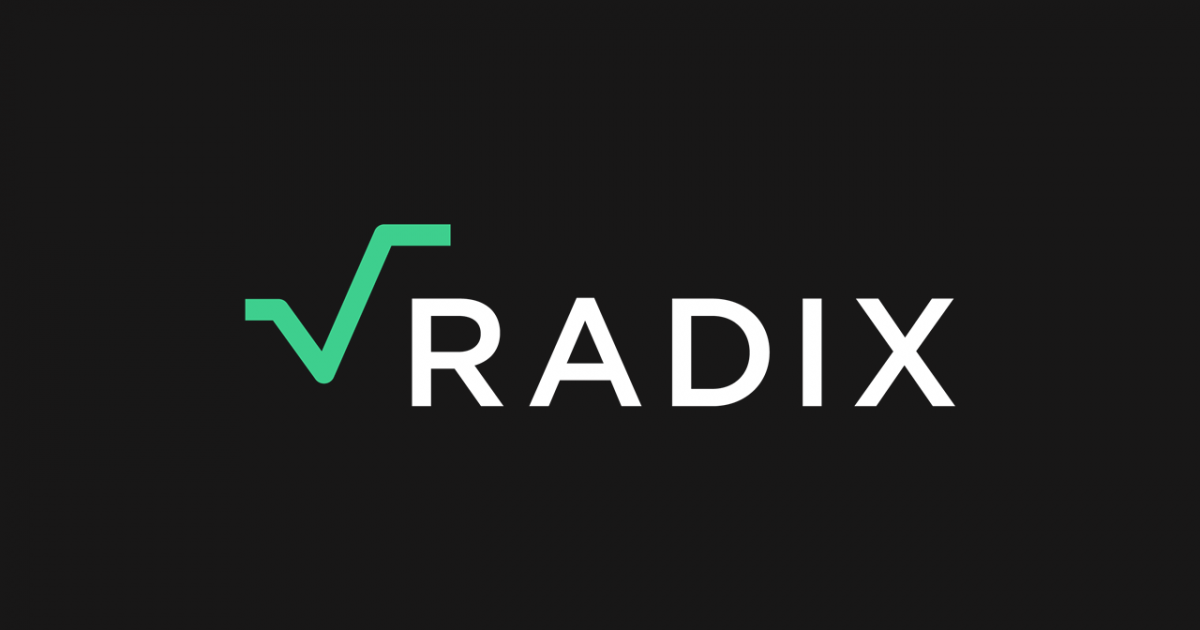With the cryptocurrency market cap rising to over two trillion dollars, it’s safe to say the face of money is looking in new directions. The financial sector is experiencing a paradigm shift comparable to the invention of credit itself, and as Forbes recently pointed out, the rise of decentralized finance will revolutionize financial services in a way that “could make financial transactions less expensive and more secure while also increasing access to everyone — and not just certain demographics or a chosen few.”
In a move that will help realize DeFi’s currently stunted potential, Radix is launching its highly anticipated Olympia Betanet on April 28. Running on a Delegated Proof of Stake (DPoS), Olympia takes advantage of technology that is as exponentially better for validating transactions as it is for the environment. DeFi and the planet patiently await Olympia’s rescue, and with the release of the Olympia Betanet, Radix signals a crucial step towards the scheduled launch of its mainnet this June.
Why Radix Is Necessary for DeFi
Though advances in DeFi are barreling ahead, they face roadblocks to mass adoption due to scalability and speed. Current blockchain systems like Ethereum, the current home of most DeFi protocols, are painfully slow and expensive to use. Ethereum today allows for only 15 secure transactions per second, and this pales in comparison to the 65,000 capacity limit of transactions per second handled by VISA’s outdated and decades-old infrastructure. Additionally, due to the congestion caused by the popularity of DeFi, using Ethereum has become incredibly expensive, limiting decentralized use cases to those with pockets deep enough to pay for the blockchain’s services.
Radix Will Redefine DeFi with Speed, Scalability, and Security
Once the full power Radix is unleashed, DeFi users will be given the capacity to execute nearly one-and-a-half million transactions per second with confirmations returned in just one to two seconds. In comparison, Ethereum’s long awaited upgrade, Ethereum 2.0, claims it will be able to handle 100,000 transactions per second. This is where Radix leads the charge in building a dynamic future: the benefits of DeFi will engender sustainable growth across all economic strata, from the halls of Christie’s auction houses selling high priced NFTs to the underserved 1.7 billion unbanked people of the world.
DeFi recently hit a milestone of $100 billion in total value locked (TVL), and most of this has been done on the equivalent of an outdated 56k modem in dire need of replacement. While Ethereum toys with layer 2 solutions for its outdated blockchain, which was designed in 2015 and is already buckling under the pressure of DeFi’s rise to prominence in mid-2020, Radix offers a broadband solution for the next generation of decentralized apps and protocols – and this figure of $100 billion in TVL will be surely eclipsed by highs aided by Olympia’s arrival. Anyone who can remember the digital renaissance that occurred around the mass adoption of broadband internet can forecast the possibilities for a DeFi future running at 1.4 million transactions a second.
Beyond this massive increase in capacity, Radix’s unique technology will reduce the possibilities for hacks and exploits. Furthermore, Olympia is composable, meaning that different DeFi protocols will be able to work with each other seamlessly, no matter how the DeFi ecosystem evolves in the future. Add all these features together, and what this means is the problems holding back blockchain technology’s mass adoption are finally being able to be solved.
What to Expect From the Betanet
Before launching any serious network, developers release a test network: a safe space for gathering a wealth of information about how the blockchain will react to users and the world at large. Test networks are also crucial for ironing out bugs and securing the mainnet for a proper launch, and the Olympia Betanet will serve this purpose in order to prepare the Olympia Mainnet for the wear and tear of public use.
100 validators, or people who help run the network, have already been selected from over 300 applications to help conduct Olympia Betanet’s trial run by meeting criteria designed to best improve the security and performance. These validators will stress-test and stretch the Betanet to its limits, and their help will undoubtedly ensure a successful June launch for Olympia in the middle of what is expected to be DeFi’s Summer 2.0.




